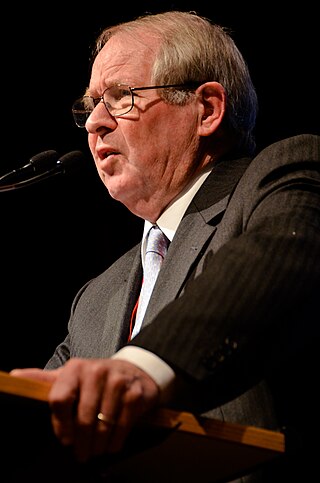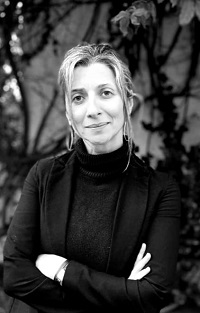Related Research Articles
In ordinary language, a crime is an unlawful act punishable by a state or other authority. The term crime does not, in modern criminal law, have any simple and universally accepted definition, though statutory definitions have been provided for certain purposes. The most popular view is that crime is a category created by law; in other words, something is a crime if declared as such by the relevant and applicable law. One proposed definition is that a crime or offence is an act harmful not only to some individual but also to a community, society, or the state. Such acts are forbidden and punishable by law.

Crimes against humanity are certain serious crimes committed as part of a large-scale attack against civilians. Unlike war crimes, crimes against humanity can be committed during both peace and war and against a state's own nationals as well as foreign nationals. Together with war crimes, genocide, and the crime of aggression, crimes against humanity are one of the core crimes of international criminal law and, like other crimes against international law, have no temporal or jurisdictional limitations on prosecution.
Mark Andrew LeVine is an American historian, musician, writer, and professor. He is a professor of history at the University of California, Irvine.

State-corporate crime is a concept in criminology for crimes that result from the relationship between the policies of the state and the policies and practices of commercial corporations. The term was coined by Kramer and Michalowski (1990), and redefined by Aulette and Michalowski (1993). These definitions were intended to include all "socially injurious acts" and not merely those that are defined by the local criminal jurisdiction as crime. This is not universally accepted as a valid definition so a less contentious version has been adopted here. As an academic classification, it is distinguished from:

State crimes are crimes committed on behalf of or with the connivance of governments. The investigation and prosecution of such crimes is made more difficult by a number of circumstances.

Israeli apartheid is a system of institutionalized segregation and discrimination in the Israeli-occupied Palestinian territories and to a lesser extent in Israel. This system is characterized by near-total physical separation between the Palestinian and the Israeli settler population of the West Bank, as well as the judicial separation that governs both communities, which discriminates against the Palestinians in a wide range of ways. Israel also discriminates against Palestinian refugees in the diaspora and against its own Palestinian citizens.

Christopher John Robert Dugard is a South African professor of international law. His main academic specializations are in Roman-Dutch law, public international law, jurisprudence, human rights, criminal procedure and international criminal law. He has served on the International Law Commission, the primary UN institution for the development of international law, and has been active in reporting on human-rights violations by Israel in the Palestinian territories.
John Lea is a British left realist criminologist. For many years he was based at the Centre for Criminology and the Crime and Conflict Research Centre, Middlesex University in the United Kingdom.

Richard Anderson Falk is an American professor emeritus of international law at Princeton University, and Euro-Mediterranean Human Rights Monitor's Chairman of the Board of Trustees. In 2004, he was listed as the author or coauthor of 20 books and the editor or coeditor of another 20 volumes. Falk has published extensively with multiple books written about international law and the United Nations.
The Centre for Crime and Justice Studies (CCJS) is a charity based in the United Kingdom focusing on crime and the criminal justice system. It seeks to bring together people involved in criminal justice through various means, including publications, conferences, and courses.
Vincenzo Ruggiero was an Italian-born sociologist who was Professor of Sociology at Middlesex University, London. He was also director of the Centre for Social and Criminological Research at Middlesex University. He died in London on 3 February 2024, at the age of 73. He is survived by his partner of 33 years, Cynthia, and daughter, Lucia.

Criminology is the interdisciplinary study of crime and deviant behaviour. Criminology is a multidisciplinary field in both the behavioural and social sciences, which draws primarily upon the research of sociologists, political scientists, economists, legal sociologists, psychologists, philosophers, psychiatrists, social workers, biologists, social anthropologists, scholars of law and jurisprudence, as well as the processes that define administration of justice and the criminal justice system.
The International State Crime Initiative (ISCI) is a community of scholars working to expose, document, explain, and resist state crime. As an interdisciplinary forum for research, reportage and debate, ISCI aims to combine rigorous academic research with emancipatory activism.
Stanley Michael Lynk is a Canadian legal academic. He is currently an associate professor at the University of Western Ontario. From 2016 to 2022 he was the Special Rapporteur on the situation of human rights in the Palestinian Territories occupied since 1967.

Crime in the State of Palestine is present in various forms which include theft, drug trafficking, arms trafficking, burglary, human trafficking and terrorism.

Anarchist criminology is a school of thought in criminology that draws on influences and insights from anarchist theory and practice. Building on insights from anarchist theorists including Pierre-Joseph Proudhon and Peter Kropotkin, anarchist criminologists' approach to the causes of crime emphasises what they argue are the harmful effects of the state. Anarchist criminologists, a number of whom have produced work in the field since the 1970s, have critiqued the political underpinnings of criminology and emphasised the political significance of forms of crime not ordinarily considered to be political. Anarchists propose the abolition of the state; accordingly, anarchist criminologists tend to argue in favour of forms of non-state justice. The principles and arguments of anarchist criminology share certain features with those of Marxist criminology, critical criminology and other schools of thought within the discipline, while also differing in certain respects.

Palestinian displacement in East Jerusalem is the transfer of Palestinian residents from the city due to Israeli policies aimed at an Israeli-Jewish demographic majority. Many Palestinian families in East Jerusalem have been affected by "forced relocation processes or been involved in lengthy legal procedures to revoke an eviction order." According to the United Nations Office for the Coordination of Humanitarian Affairs (OCHA), between a third to a half of East Jerusalem's houses do not have permits, potentially placing over 100,000 Palestinian residents of the city at risk of forced displacement and forcible transfer as a result of demolitions.

Gregg Barak is an American criminologist, academic, and author. He is an emeritus professor of criminology and criminal justice at Eastern Michigan University, a former visiting distinguished professor in the College of Justice & Safety at Eastern Kentucky University, and a 2017 Fulbright Scholar in residence at the School of Law, Pontificia Universidade Catholica, Porto Alegre, Brazil. He is most known for his research in the fields of criminology and criminal justice.

Francesca P. Albanese is an Italian international lawyer and academic. On 1 May 2022, she was appointed United Nations (UN) Special Rapporteur on the occupied Palestinian territories for a three-year term. She is the first woman to hold the position.
Ragnhild Sollund is a Norwegian professor and author. She is professor of Criminology at the University of Oslo. Sollund has published widely in the area of migration, violence, police racial profiling and green criminology particularly relating to wildlife conservation. She is internationally recognized as one of the pioneers of green criminology, which studies the relationship between nature and society in a eco-global perspective, as well as the harms and crimes humans cause the natural environment and nonhuman animals.
References
- ↑ "Penny Green". statecrime.org. Retrieved 25 January 2017.
- 1 2 "Penny Green". www.law.qmul.ac.uk. Retrieved 25 January 2017.
- ↑ "Penny Green Archives". UN Watch.
- ↑ "Special Rapporteur on Palestinian territories occupied since 1967". www.ohchr.org. Retrieved 25 January 2017.
- ↑ "Drugs, trafficking and criminal policy: the scapegoat strategy". catalogue.nla.gov.au. Waterside Press. 1998.
- ↑ "Enemy Without: Policing and Class Consciousness in the Miners' Strike | Office of Justice Programs". www.ojp.gov.